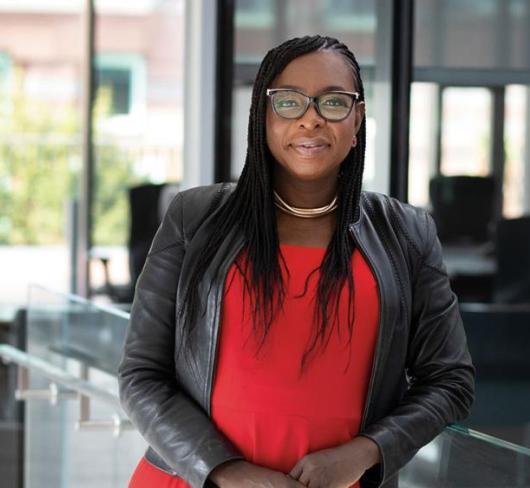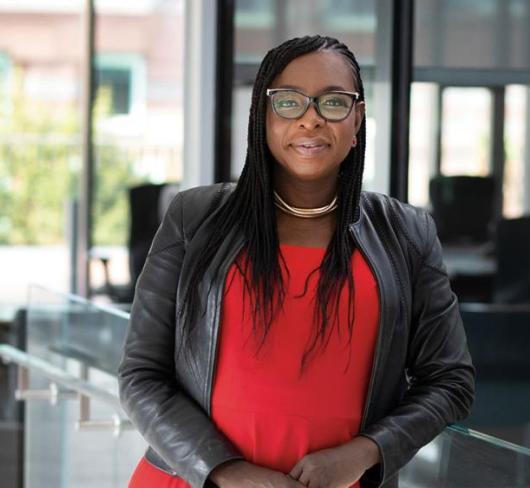
Tunnel Vision or Panoramic View? (Equity and Women's Services)
For some time now, I have been examining my thoughts and actions as I recall my years in the classroom. I use the question, “What stories did I construct about a child or children that imposed limitations or opened up possibilities for their learning and achievement?”
A similar question serves me well in my current role, working for the federation. I now ask myself: “What am I thinking about members to enable their personal growth, professional development, and service, or in what ways are my thoughts and actions constraining their efforts?”
Judgments we make about one another stem from our ideologies, values, and beliefs, and are often fuelled by prejudices acquired through our histories and life experiences. These days we hear a lot about the importance of “critical reflection,” but effective critical reflection requires a process of building new knowledge and taking thoughtful action. Without these two key components we are spinning our wheels. Within our service area, staff work consciously to implement new programs and to build our knowledge so that we can assess the direction and scope of our actions. This is one way that we hold ourselves accountable to the vision and priorities of ETFO.
This column highlights some learning experiences and actions of two ETFO members who have been working to build their knowledge and take thoughtful action. Val Inksetter from the Hamilton-Wentworth Teacher Local and Bryce Honsinger from the Niagara Teacher Local share aspects of their equity and social justice journeys.
Val Inksetter
“As a newly elected executive member-at-large with the Hamilton-Wentworth Elementary Teacher Local, I am thrilled to have an opportunity to represent colleagues and continue my journey of learning.”
“I am fortunate to have participated in a number of valuable equity and social justice programs over the last years and am realizing the importance of these experiences to me as I begin my role as an executive member. Two ETFO programs, Leaders for Tomorrow and the Professional Learning Community, have enabled personal connections with staff and teaching colleagues. Through these programs I have been able to build and expand a supportive network of critical friends. These people willingly share knowledge and resources to help me as I seek to assist members in my local. Supportive networks work to open up and share strategies for success by dialogue and critique, and offer possibilities for positive changes.
“ETFO also offers an incredible collection of print resources that assist in bridging personal development to teaching responsibilities. Resources such as Roots of Equality and Connectionsare teacher-friendly and curriculum-based, and offer practical ways to integrate important topics relevant to the wide scope of everyday experiences our students encounter. They connect theory to practice. I like the model that EWS offers by supplementing resources with workshops that encourage dialogue about race, gender, abilities, and a variety of social justice topics.
“I have personally benefited from training to deliver a number of equity workshops and will encourage our local to host several for members. With new understanding and information regarding equity and social justice, I will strive to encourage diversity amongst executive members, stewards, and committee members in our local. Our city is diverse, our student population is diverse and it is important that our local be a model for acceptance of difference and change. I will work hard to extend my learning into the classroom and help to build the knowledge of my students on these important topics. I am thankful to be part of an organization that holds social justice as an important vision and takes action towards this vision.
Bryce Honsinger
“Participation in the racism hurts campaign was an enlightening experience that motivated me to critically examine how I could develop effective programming for students that would enable them to develop respect for diversity and difference.”
“The world has truly become a global community, and if our students are to become successful in this community they need skills to work with a wide variety of people and develop relationships based upon respect. The racism hurts campaign and the activities developed for it provide students with opportunities to celebrate the unique qualities that each individual has, and promote development of a critical understanding of diversity and respect for difference.”
”We can teach children to accept other cultures and appreciate the diversity that exists within our nation, but we must also provide our children with information and the tools required to break down stereotypes, prejudice, and barriers to acceptance that exist within our schools, institutions, and homes. Learning about different traditions and cultures is one way to celebrate diversity and promote acceptance of difference, but this must be coupled with a recognition of the fact that racism does exist within society and that it must be dealt with. The program, racism hurts, enables students to explore diversity, examine racism within our societies, and learn about the actions they can take to stop it.
“Perhaps Jessica Rimmington, founder of the One World Youth Project, summarized best how educators and students should view the future when she stated, ‘As young people we are not just the future. We are the present as well. We are the right here and right now! And, if we want to change the world, we have to not only take action ourselves, but also inspire others to do the same.’ Programs like racism hurts will not only educate students and staff about the contemporary realities of racism within our societies, but also motivate both students and educators to work together to eliminate racism from our societies.”

